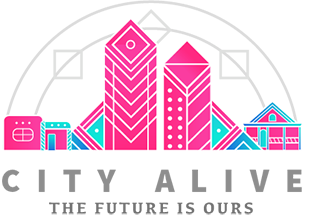Flipping the Script on Financially Oppressed Communities
By Vanessa Roanhorse | CEO, Roanhorse Consulting; Co-Founder, Native Women Lead
Halfway through a three-day summit in Denver, Colorado someone asked, “Why are we still talking about venture capital?”
Boom. That was it. After attending the first half of the Alternative Capital Summit, put on by the Kauffman Foundation, Zebras Unite, and Startup Colorado, that was the very thing I had been thinking. The summit’s goal was to gather venture innovators to promote new forms of funding for businesses that are systematically underserved. But according to the Kauffman Foundation, “81 percent of entrepreneurs don’t access formal financing...and less than one percent of investment capital is serving founders of color.” Venture capital is not solving the majority’s lack of access. We also have to ask the question: who makes up this 81 percent?
When we have conversations about financial equity, I think about what that means within the context of my own people’s history, the Diné (Navajo) people. Financial equity is about financial freedom to self-determine a future that is filled with opportunity and dignity. Right now, that financial autonomy is being stripped away by a variety of factors, most notably systemic oppression, predatory lending, lack of livable wages and access to capital.
What Inequity Looks Like
Uncovering who are the 81 percent of entrepreneurs that can’t access formal financing–and why–will be hard work. It will require more focus from industry and community leaders to look at how we got here. According to this Institute for Policy Studies report, White families have seven times more wealth than Black families and five times more wealth than Hispanic families – and who knows how bad it is for Native Americans because, let’s be real, that data set is rarely reported (if even collected).
What we do know is, New Mexicans took out more than 250,000 storefront loans in 2016. The Native American Business and Policy Institute at UNM reported more than $100 million was paid in fees and interest to these unscrupulous lenders. What’s worse, the majority of predatory lenders are located in low-income communities. For example, Gallup is almost 50 percent Native American and has the highest concentration of storefront lenders in the state, with nearly 50 licensed lenders for a population of less than 23,000. Storefront lending in towns that border many reservations is often the only way people can access quick cash to cover daily living expenses or personal emergencies. So when I think about the meaning of equitable access to capital, I immediately think about those who are unbanked, lack equity and steady jobs, and are just trying to take care of the basics. Closing the racial equity gap will take a generation, but it requires urgency and swift action today.
Solutions on the Rise
So what’s being done? If we are going to forge new pathways to financial equity, we have to look at the whole system: fair pay, ability to purchase property and access to money. The work started at the Alternative Capital Summit is growing and I invite anyone interested in this work to join us. At all levels of investment, we need alternative models of lending which support entrepreneurs without societal advantages. We need alternative models of venture capital not solely focused on only generating profit (see Zebras Unite) but also supporting communities, people and the environment. Frankly, we need to recognize that access to capital is more than just access to money for a business - it’s access to a healthy, safe and viable family structure.
What’s Happening Here
We are doing incredible work here in New Mexico, and in particular, here in Albuquerque with Co-op Capital, a project through Nusenda Credit Union and supported by City Alive. It is an exciting time to be working with partners to experiment and push against the traditional loan models to address these gaps for our local entrepreneurs of color. In New Mexico we don’t have a diverse portfolio of investment instruments to leverage...yet.
However, momentum is building. For example, Prosperity Works provides Individual Development Accounts (IDAs) to encourage savings, investment and asset accumulation among hard-working families. The Family Independence Initiative provides an environment and technology platform for families to build social capital within their own communities. They learn about the actions and activities families are taking to improve their lives and design direct capital investments matching their initiatives. New Mexico Community Capital’s flagship program, Native Entrepreneurship In Residence Program, provides seed funding and high-touch mentorship to their entrepreneurs. So far they’ve created $8.5 million dollars in new gross revenues and 128 new jobs. Initiatives like these that invest in early-stage startups with a direct focus on equity and family-focused economics are working.
What’s Next
I would like to see our state be the place where innovative financing models and policies are developed, tested and implemented. Where we build funds and programs that include a whole-family approach to economic viability and business security.
I would like to see New Mexico create financial freedom for all of our citizens that is based on our cultural values. New Mexico has always been a place driven by small business. Albuquerque is primed to be the testing ground for new financing models; we have a willing, diverse community and local leaders who are ready to increase their reach and impact. Albuquerque is a hub for nearly all 25 Tribes that live, work, commute and contribute to our local economy. Geographically, we are the epicenter of many thoughtful, engaging and intersecting peoples and cultures. Creating a regional impact through the cross-pollination of ideas and innovation is completely within our city’s reach. Let’s end “capital punishment.” The time is now.
About the author:
Vanessa Roanhorse is Diné, from the Navajo Nation, CEO of Roanhorse Consulting, Co-Founder of Native Women Lead and is a member of the City Alive Leadership table.
Connect The Dots:
City Alive brings together Albuquerque institutions and community partners to rebuild the systems that limit access to capital. Read more about our work to address wealth inequity and support entrepreneurs of color here and here. In addition to the Co-op Capital program, City Alive is home to an SU3 initiative. Through SU3, Albuquerque is increasing access to venture capital for tech companies run by historically disadvantaged entrepreneurs.


